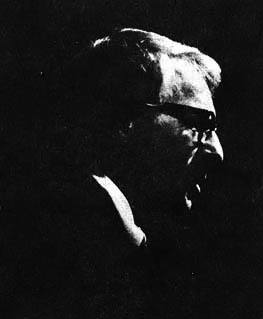Listening to authors give interviews often helps us understand their process. That is to say, spur of the moment questions can be revealing. Author and speculative-fiction master Ray Bradbury has a wealth of great interviews that help listeners understand his approach to writing. Ray Bradbury’s writing concepts are both ideological and practical. Often times, understanding the spirit of his advice is what will push you toward success.
In this post, we are going to look at a transcript of a talk he gave on a specific approach to immersing oneself in the world of writing. The talk was published by The Narrative Art channel on YouTube, and I have published the transcript here. In this dialogue, he talks about the most important texts to consume if you are a budding author. It is certainly an interesting dissection of his process and his take on the “hygiene of writing” is enticing. If anything, I believe you can take something from his talk for your own writing.
Ray Bradbury and “The Hygiene of Writing” Transcript
“There’s a lot I want to say because I recognize the need many of you have to be writers, and you don’t want to do the wrong things. So for at least five minutes, I want to talk about the hygiene of writing for you so you won’t do anything wrong in the next year.
The first thing that comes to mind is the danger of writing novels to start. I don’t know how many of you are writing novels now. If they’re going well, you don’t have to listen to me. But the problem with novels is you could spend a whole year writing one, and it might not turn out well because you haven’t learned to write yet. The best hygiene for beginning writers—or intermediate writers—is to write a hell of a lot of short stories.
If you could write one short story a week, it doesn’t matter what the quality is to start, but at least you’re practicing. And at the end of a year, you have 52 short stories, and I defy you to write 52 bad ones. It can’t be done. At the end of 30 weeks, or 40 weeks, or the end of the year, all of a sudden, a story will come that’s just wonderful.
That’s what happened to me. I started writing when I was 12, and I was 22 before I wrote my first decent short story. That’s a hell of a lot of writing—millions of words—because I was doing everything wrong to start. Of course, I was imitating. I had so many heroes that I wanted to be like. I liked H.G. Wells, I loved Jules Verne, I loved Conan Doyle—Sherlock Holmes, for God’s sake. Jeeves, I loved Wodehouse.
Well, you can’t be any of those things, can you? You may love them, but you can’t be those. I loved Edgar Rice Burroughs—Tarzan, John Carter, Warlord of Mars. Good Lord, wonderful stuff. The Wizard of Oz, L. Frank Baum. You know, I always dreamt someday I could grow up and write an Oz book, but it’s not to be—not to be.
So the main thing I want to start with tonight is to get you to write more short stories. Then you’ll be in training. You’ll learn to compact things. You’ll learn to look for ideas. The psychological thing here is that every week, you’ll be happy. At the end of a week, you will have done something. But in a novel, you don’t know where the hell you’re going. At the end of a week, you don’t feel all that good. At the end of a month—I’ve been through novels. I waited until I was 30 before I wrote my first novel, and that was Fahrenheit 451. It was worth waiting for.
But I was fearful of novels. I recognized the danger of spending a year on something that might not be very good. And your second novel might not be very good, or your third one. But in the meantime, you could write 52 or 104 short stories, and you’re learning your craft. That’s the important thing.
Read people like Roald Dahl. Get his books of short stories. Get the short stories of G. de Maupassant. Get John Cheever, who has done some very good short stories over and above his novels. Richard Matheson, in my own field.
Nigel, an author named Nigel Kneale—K-N-E-A-L-E. Nigel Kneale. Read his short stories. John Collier—one of the greatest short story writers of this century. And you know you’ve never heard his name. Try and look him up. He’s out of print right now. I’m trying to get him back in print next year. John Collier, English writer. He wrote brilliant short stories that deeply affected me when I was 22 years old.
The more quality short stories you read from the start of the century—Edith Wharton’s short stories, save her novels till later. There are many women writers who influenced me. Katherine Anne Porter, her novellas, all of the short stories of Wharton. The Curtain Is Green by Eudora Welty. Wonderful short stories.
The more of these you can take in—and stay away from most modern anthologies of short stories, because they’re slices of life. They don’t go anywhere. They don’t have any metaphor. Have you looked at The New Yorker recently? Have you tried to read one of those stories? Didn’t it put you to sleep immediately? They don’t know how to write short stories.
Go read Washington Irving. Go read the short stories of Melville. Go read Edgar Allan Poe again. Go read Nathaniel Hawthorne, a writer of fantasy in the science fiction field. Many collections of short stories, because they all deal with metaphor.
And the sooner you recognize the ability of seeing a metaphor, and knowing how to write the metaphor, and to make collections of them, the better off you’ll be. Then you’ll be ready for the novel.
Maybe some of you here tonight are automatically good novelists. So I’m not talking to you. You’re fortunate that you were born that way. But I discovered along the way I was a collector of metaphors.
Now, I don’t know how I can teach you to recognize the metaphor when you see it. But what you’ve got to do from this night forward is stuff your head with more different things from various fields. Hygienically speaking, I’ll give you a program to follow every night—a very simple program for the next thousand nights.
Before you go to bed every night, read one short story. That’ll take you 10 minutes, 15 minutes. Then read one poem a night from the vast history of poetry. Stay away from most modern poems—it’s crap. It’s not poetry. It’s not poetry. Lines that look like poems? Go ahead and do it, but you’ll go nowhere.
But read the great poets. Go back and read Shakespeare. Read Alexander Pope. Read Robert Frost. But one poem a night. One short story a night. One essay a night for the next 1,000 nights, and from various fields—archaeology, zoology, biology, all the great philosophers of time, comparing them. Read the essays of Aldous Huxley. Read Loren Eiseley, a great anthropologist.
Maybe you’ve never heard of him—Loren Eiseley, E-I-S-E-L-E-Y. He was head of the Department of Anthropology at the University of Pennsylvania. He became my friend 40 years ago. I read an essay of his in Harper’s, “The Fire Apes,” which was so brilliant I wrote him a fan letter.
I said, “Dear Dr. Eiseley, ‘The Fire Apes’ is the finest essay written in the last 20 years in any American magazine. Why don’t you write a book?” He wrote back and said, “Hey, that’s an idea. I think I will write a book.” And he wrote 17 books. But I was his papa, even though I was 15 years younger.
So reread all the books of Loren Eiseley. They’re crammed with pomegranate ideas. That’s why I want you to read essays in every field—on politics, analyzing literature. Pick your own.
But that means every night before you go to bed, you’re stuffing your head with one short story, one poem, and one essay. At the end of a thousand nights, Jesus God, you’ll be full of stuff, won’t you? You’ll be full of ideas and metaphors, along with your perceptions of life and your own personal experiences, which you put away—and what you see in your friends and relatives.
You want all these things to go in. And the more metaphors you can cram yourself with, they’ll bounce around inside your head and make new metaphors. That’s why you’re doing this. But you’ve got to be able to recognize one when you see one.
So hygienically speaking, you’ve got two things to do. If you feel you have to do a novel in spite of what I said, go do it. But in the meantime, write a hell of a lot of short stories. And then every night, do these three things with the short story, the poem, and the essay. And you’re well on your way to being more creative.
Conclusion
In considering Ray Bradbury’s writing advice, we have to understand the practical nature of what he is telling us as writers. If you want to become a better writer, you have to read more; and, his advice is asking you to focus on the classics when it comes to form and structure. If you understand the basics then you can play with the template, you can evolve your own writing, and you can certainly experiment with writing concepts.
Works Cited
“Ray Bradbury on the Dangers of Starting with a Novel.” The Narrative Art. June 13, 2016. Web, https://www.youtube.com/watch?v=IWBF4R6MW-k
Discover more from The Writing Post
Subscribe to get the latest posts sent to your email.


One thought on “Ray Bradbury’s Hygiene of Writing Advice”
Comments are closed.